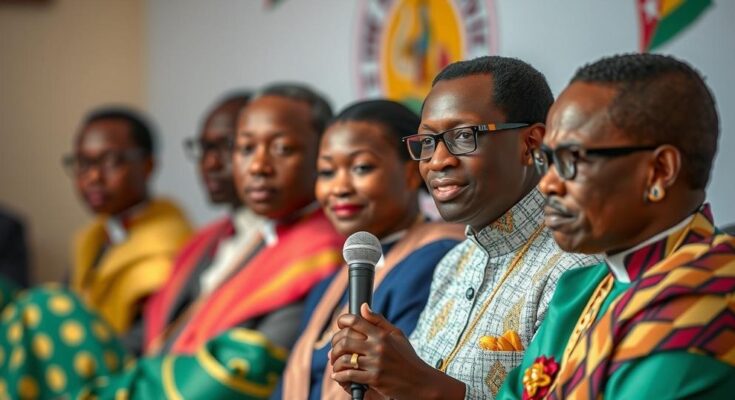Mozambique is experiencing severe post-election violence following Frelimo’s election victory amid allegations of fraud. The unrest has resulted in over 130 deaths and widespread looting, prompting thousands to flee the country. The South African Council of Churches has raised concerns over public safety and called for regional intervention to restore stability and assist in humanitarian efforts.
Following the announcement of the ruling Frelimo party’s victory in the October 9 presidential election, Mozambique has been engulfed in post-election violence. The opposition party, Podemos, led by presidential candidate Venancio Mondlane, has disputed the electoral commission’s results, claiming significant electoral fraud. Reports indicate that clashes with law enforcement have resulted in over 130 fatalities, alongside widespread unrest that has forced many citizens to seek refuge in neighboring countries.
As violence erupted in major cities, the South African Council of Churches (SACC) expressed grave concern over Mozambique’s worsening public safety situation. With rampant looting, arson, and attacks on security personnel, community leaders reported that more than 200 individuals had died in the chaos. The SACC noted the growing mistrust between the public and police forces, leading citizens to take matters into their own hands to protect their property in the face of law enforcement’s inadequacies.
The aftermath of this turmoil has led to displacement, with thousands fleeing to nearby countries like Angola, Malawi, Zimbabwe, and South Africa, amplifying regional instability. The SACC has called upon the Southern African Development Community (SADC) to address the urgent need for stability and to facilitate interventions to restore peace.
In response to the humanitarian crisis, the SACC and the Christian Council of Mozambique (CCM) are mobilizing to provide essential resources, including food and healthcare. Despite the ongoing strife, both political entities have shown a willingness to engage in dialogue, highlighting the importance of continued negotiations for a peaceful resolution. The SACC reaffirms its commitment to national unity and collective action for the wellbeing of the Mozambican populace.
The political landscape in Mozambique has historically been dominated by the Frelimo party, which has been in power since the country’s independence in 1975. The recent presidential election and the subsequent violent protests reflect deep-seated grievances regarding electoral integrity and governance. Opposition parties, particularly the emerging Podemos party, have challenged Frelimo’s prolonged rule, citing evidence of electoral malfeasance. The unrest has raised concerns not only for Mozambique but for the broader Southern African region, as violence and instability threaten to spill across borders.
In summary, the recent presidential election in Mozambique has triggered significant unrest, revealing a critical need for dialogue and national reconciliation. The SACC and CCM’s efforts to mobilize aid and foster unity amidst escalating violence highlight the urgent humanitarian crisis faced by many citizens. The situation necessitates immediate attention from regional bodies like the SADC to avert further instability and promote recovery efforts within Mozambique.
Original Source: www.aciafrica.org




